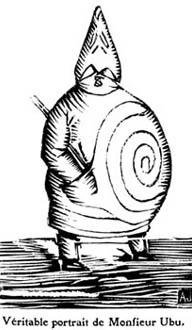User Login |
Julie Patton and Charles Bernstein (Sophie)
<!--StartFragment-->
The Julie Patton and Charles Bernstein reading was one I had been looking forward to for a weeks. Patton’s free flowing lyricism and Bernstein’s offset humor and methods of construction greatly enticed me, and the anticipation had been rising. When they entered the Bowery Poetry Club I was struck by how delicately mellow Patton appeared and how her wild flowing grey dread locks complemented her uninhibited poetry. Bernstein is hard to miss upon entrance because his energy is impossibly to bypass in addition to his wit and humor. Patton took the stage first and made herself comfortable on the stair, removing the microphone from the stand. She began with what she explained to be a portion of an interview with her mother. The entirety of this piece was a play on the word “blue” and other blue-like colors, and Patton expelled interesting word play and a method that seemed to use the sound of words to accentuate their meanings. She switched up certain pronunciations to incorporate “blue” into a word (proba-blue cause) and somehow made her way from the color blue, to the musical genre of The Blues. She asked, “Is blue paint named after the blues? If so why is there no Coltrane Blue?” and various other references. The direction of the poem was unclear but very interesting and humorous, and I’m not even sure there was a direction to begin with, considering it was an interview. She kept us guessing with little time to digest what we had just heard, before the next line presented itself. The piece was also interrupted at times with random questions or ideas like “What do you want to be? Italic or plain texts?” which Patton later explained were real interruptions that occurred during the interview. Patton later explained that her mother is a painter, which made the interview and its direction comically sensible. The next piece we were graced with was a piece of art that I will forever attempt to aspire to. I have never heard the names of flowers and other gardening vocabulary used so innovatively seductive. Patton spoke of a garden, but in speaking of a garden she allowed her new words (created by cut and pasting words fractions, ideas, and phrases) to lead her through politics, to love, to making love. She used different voices and sing talking to ring the listeners along, but never abandoned us in her verbal wasteland. She held our hands through her lyrical adventures and allowed us to be mere spectators. But I would rather be a tourist along side of Julie than never experience her at all. Charles Bernstein, Charles Bernstein, Charles Bernstein. One of the most off the wall characters I have ever encountered and with out a doubt one of the most entertaining. His edition of a Louis Zukovsky poem was read in what he called “Brooklynese” which, from what I gather, is Bernstein’s rendition of the heavy accent of a Jew from Brooklyn. To be honest, I couldn’t follow the poem due to the hysterical laughter I was attempting to stifle and the only line I recall is “Kindness comes forth but from his vigor.” Nevertheless, it was invigorating. Bernstein followed with a social commentary piece of New York residents, amplifying on the lack of common courtesies New Yorkers express. It was nothing short of hilarious to see the potency of his sarcasm and simultaneously inspiring. This piece really reinforced the idea that everyone (especially New Yorkers) takes himself or herself too seriously, something I thoroughly agree with. Bernstein followed this poem with more intermittent nonsense and witty banter solely for our entertainment and his comical release, in addition to a round about poem talking about the poem itself.
“This poem is an accessible poem.” “This poem does not think its better than the reader.” “It says what it says, it’s real.”
The rest continues as such and arrives at no conclusion. The entire poem was simply an explanation of a poem that is not elusive, complicated, or purposeful. This poem embodies many traits that Bernstein embodies as a writer such as sarcasm (not irony, as he elaborately distinguished) and simplicity. He takes the most bland situations and ideas and turns them into poetry and elaborate conclusions, which is something I find very respectable. My expectations this night were met and surpassed. The opportunity to see Bernstein’s personality really allowed me to further understand the purpose (or sometimes lack there of) of his work in addition to enjoying him as a person. Patton’s eloquence was evident in addition to her aura of a strong woman, set in her way and she was very enjoyable. I highly recommend seizing any opportunity to enjoy these two poets in person and the only recommendation I can purpose is to keep an open mind, an open ear, and to allow the words to flow in as fluidly as they did out. <!--EndFragment-->
categories [ Poetry Reviews ]
login or register to post comments | printer friendly version
|
